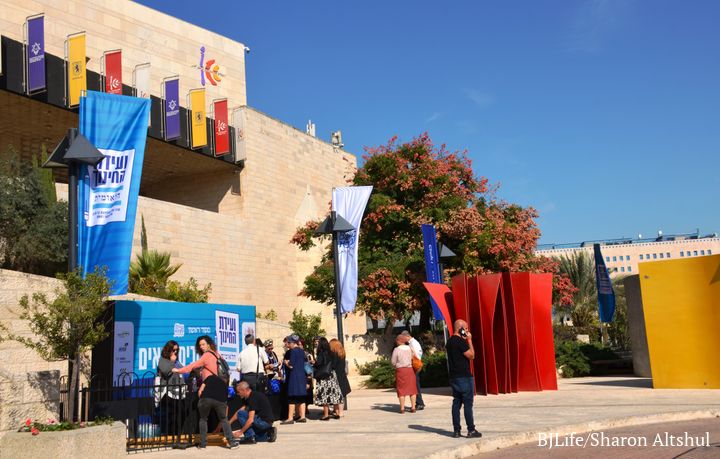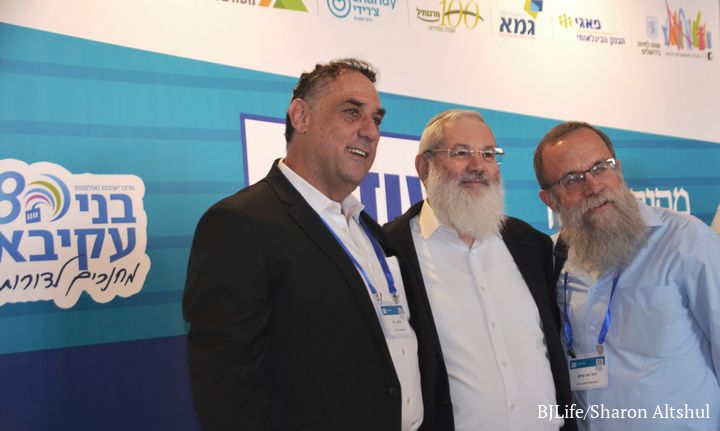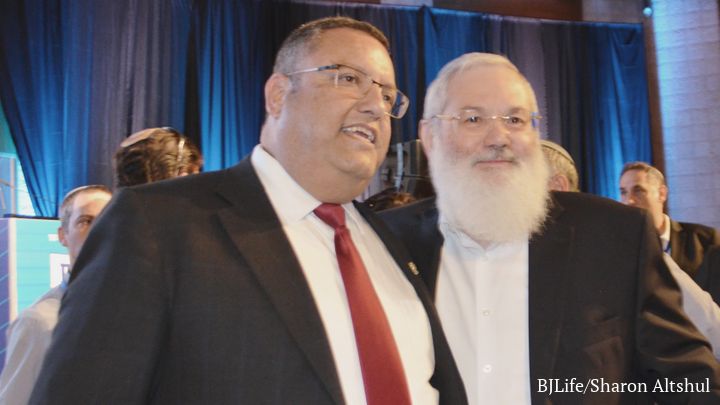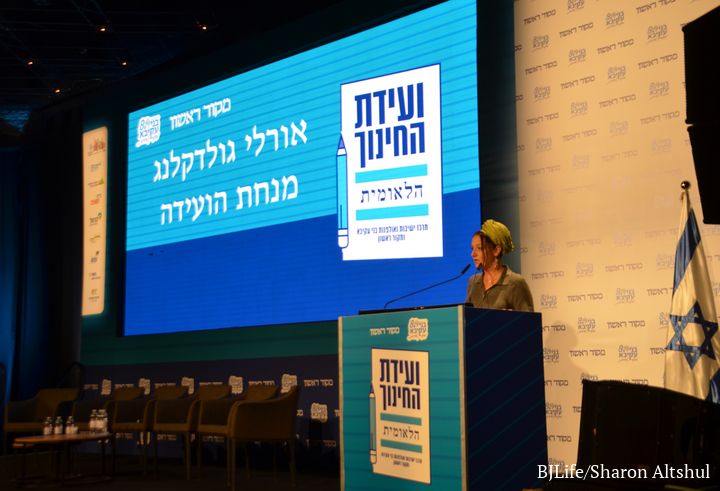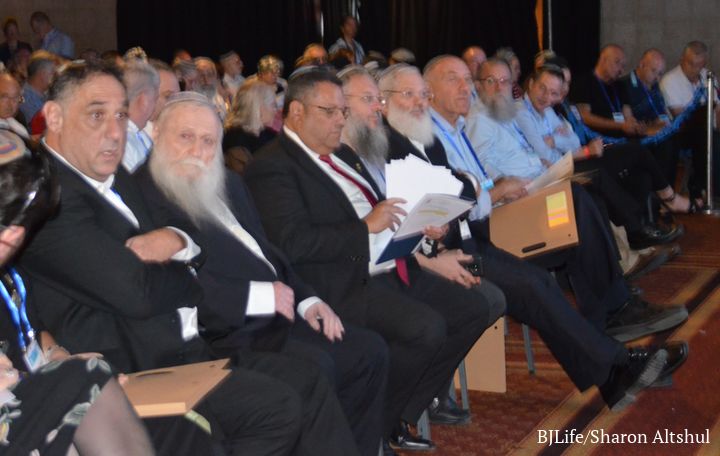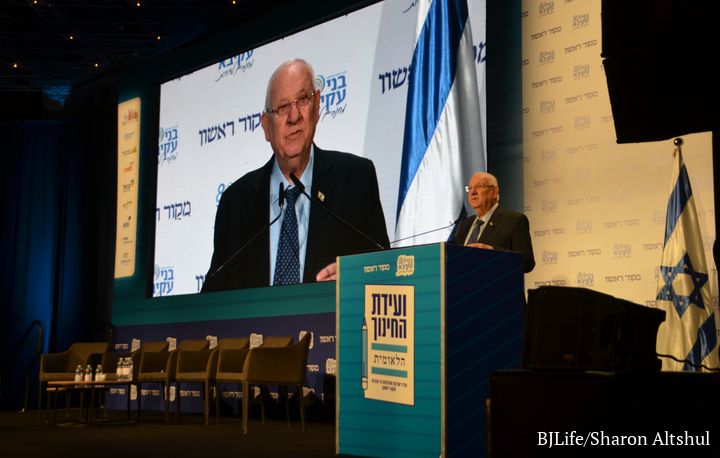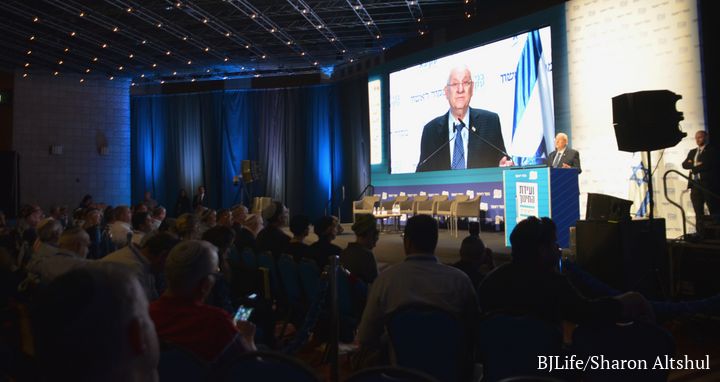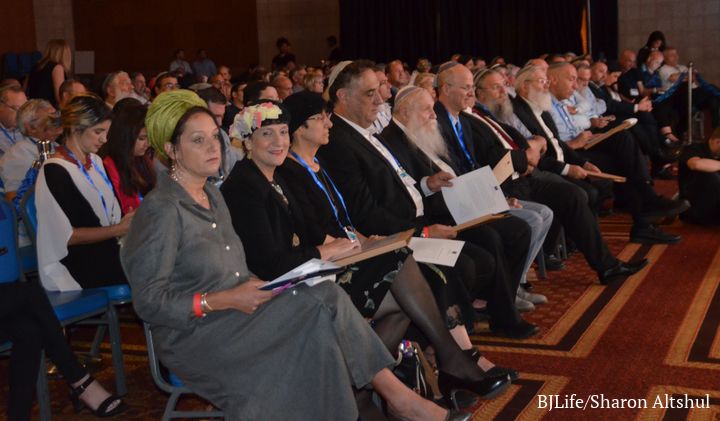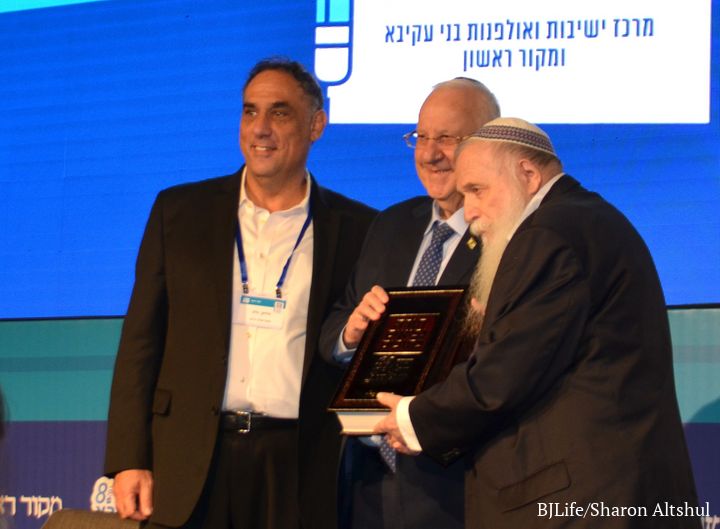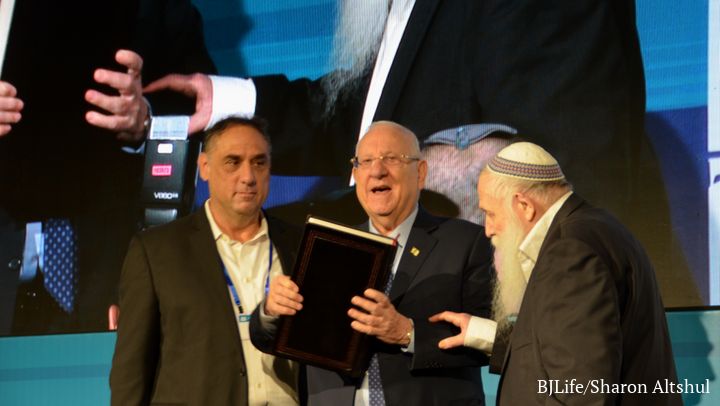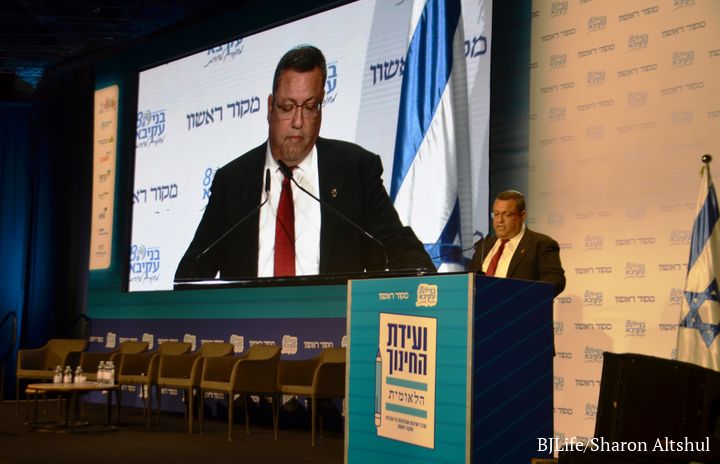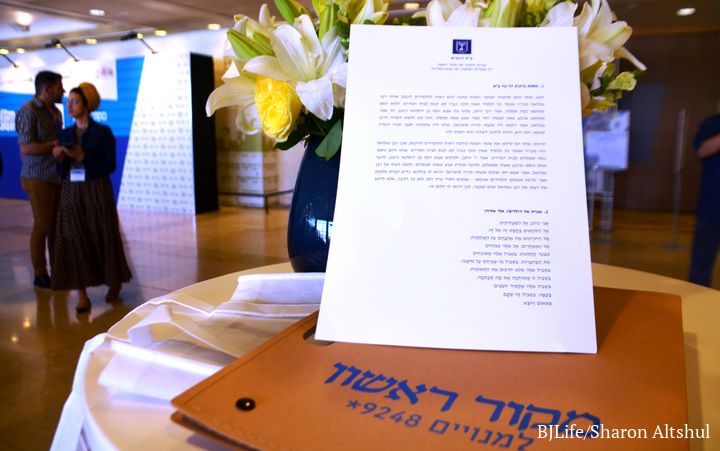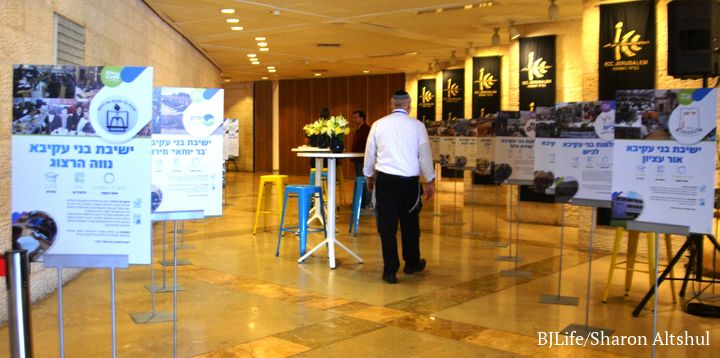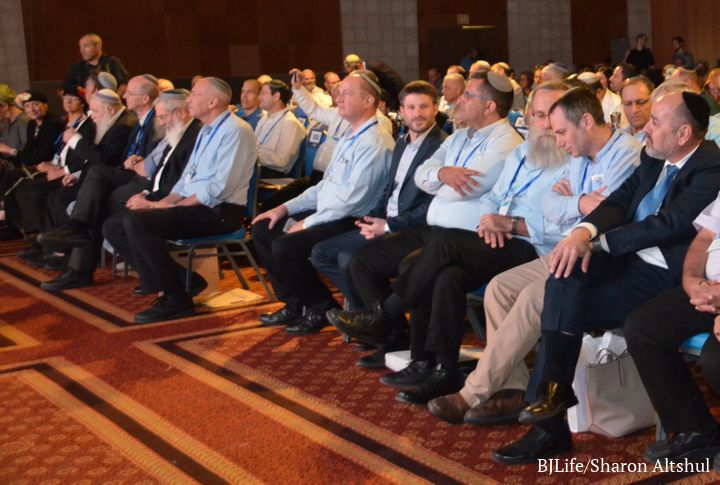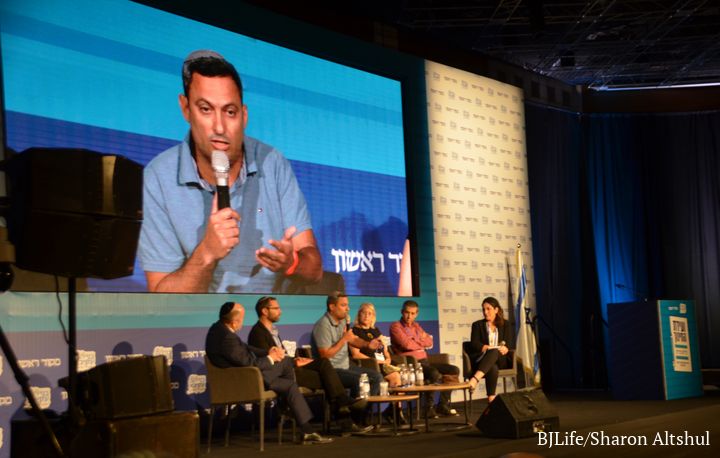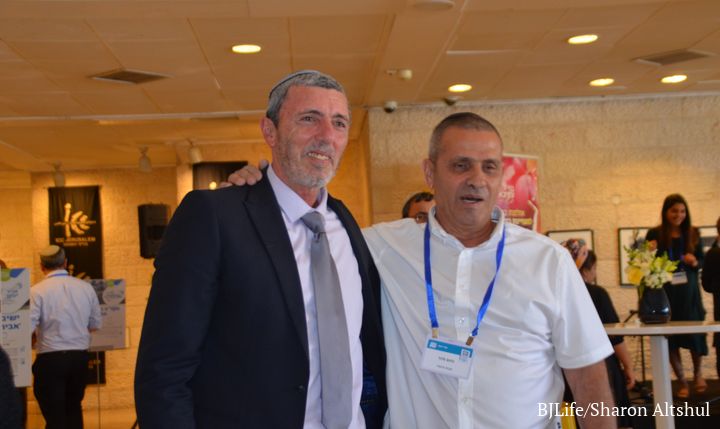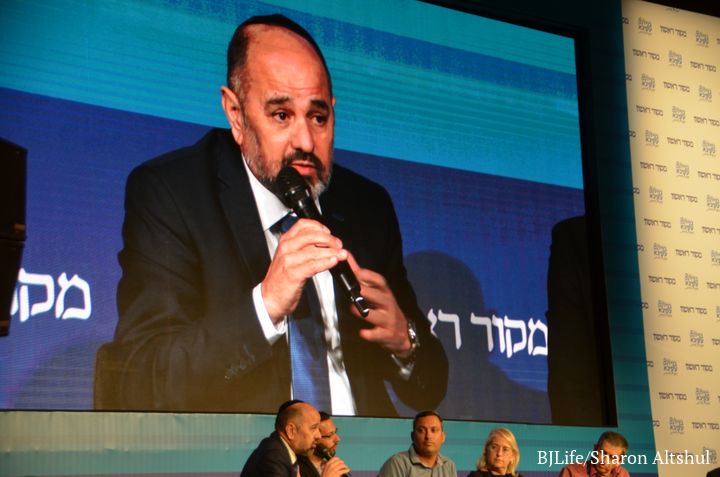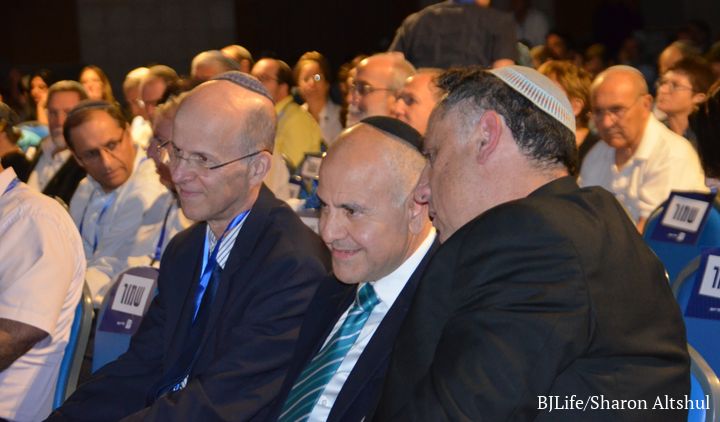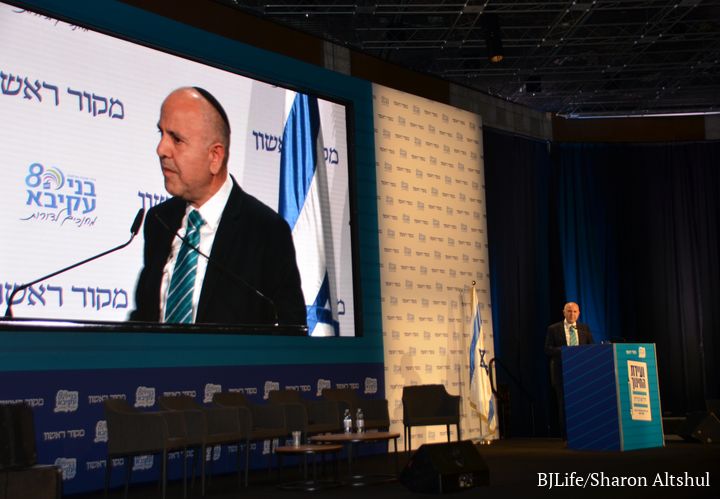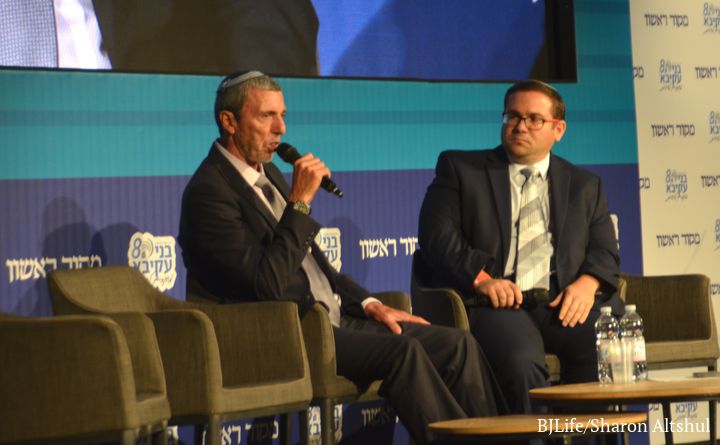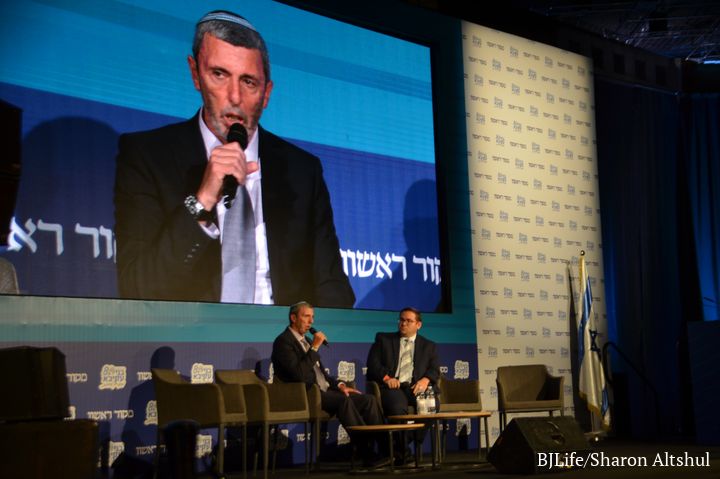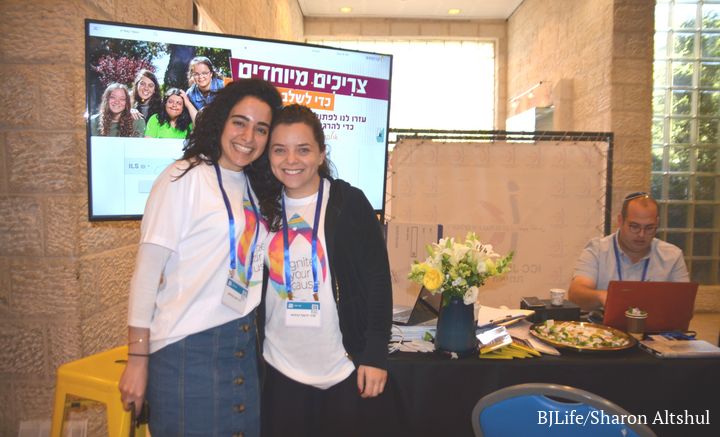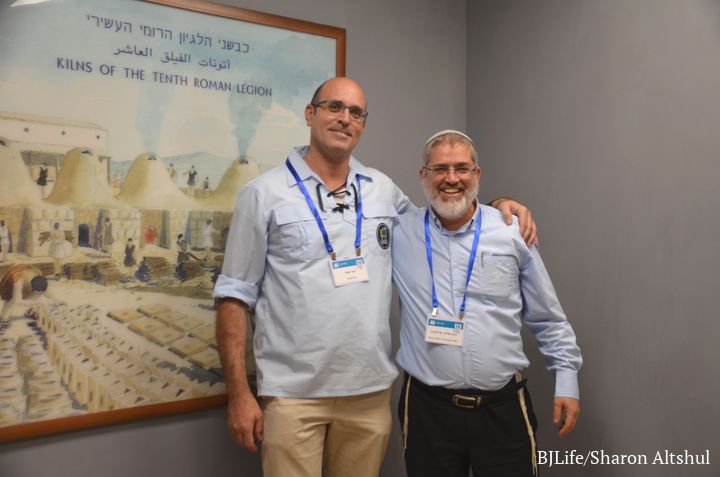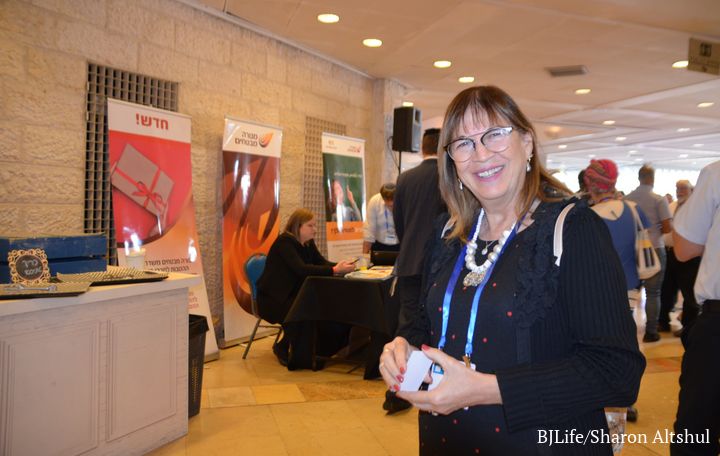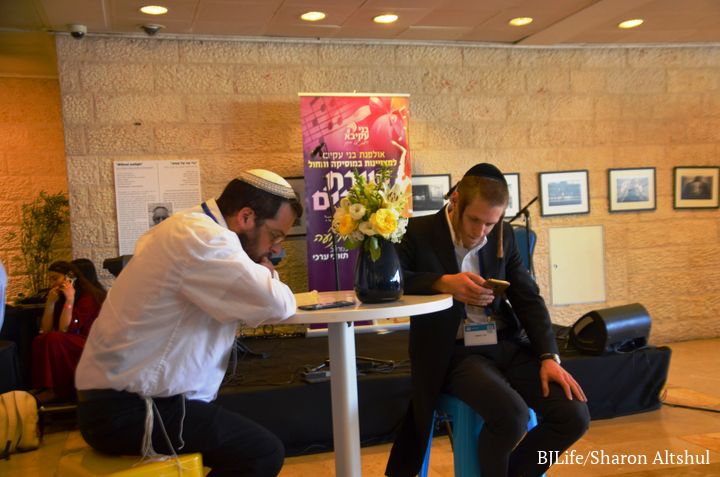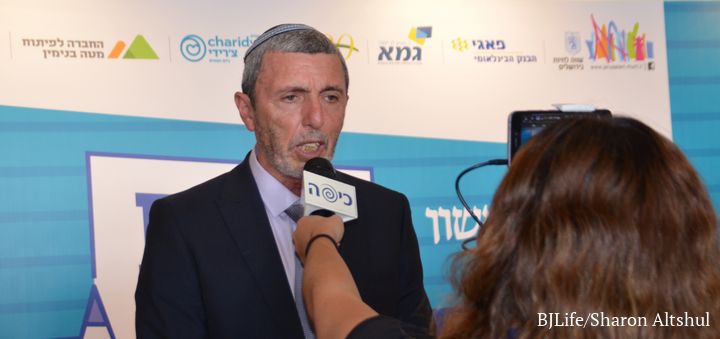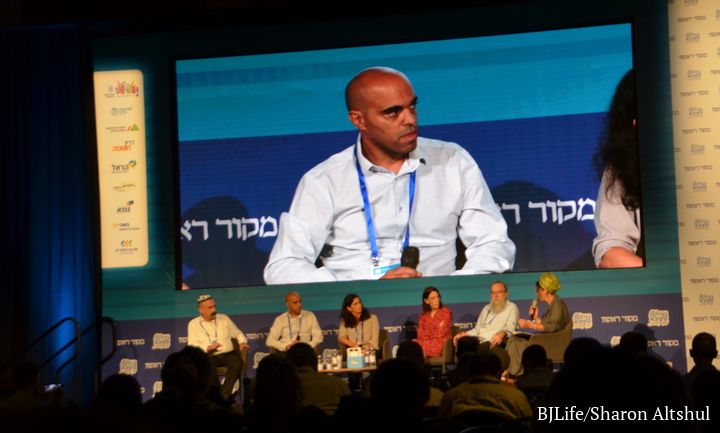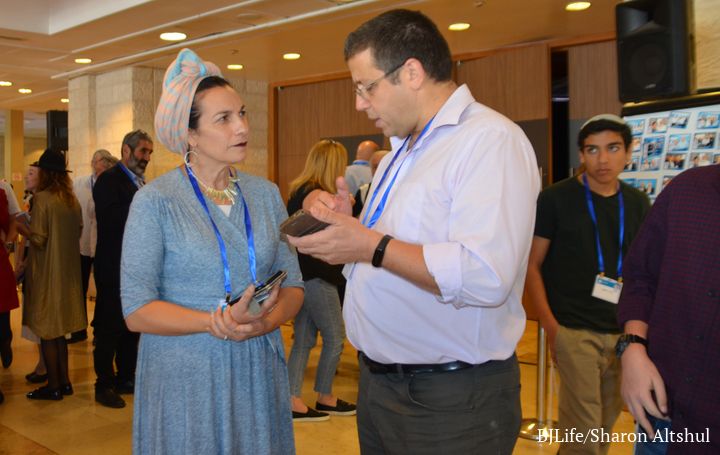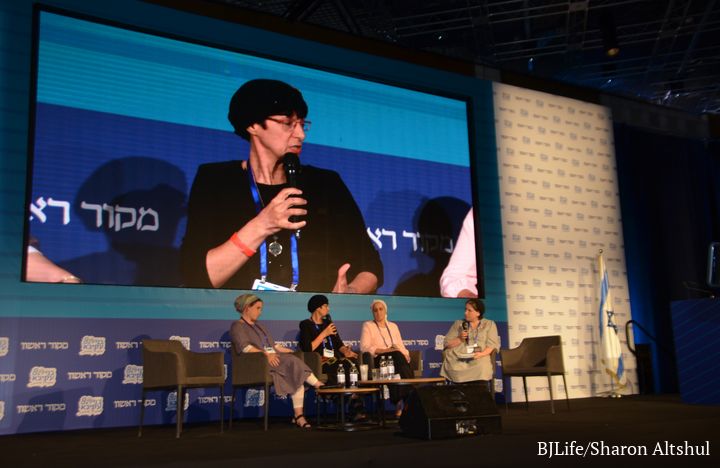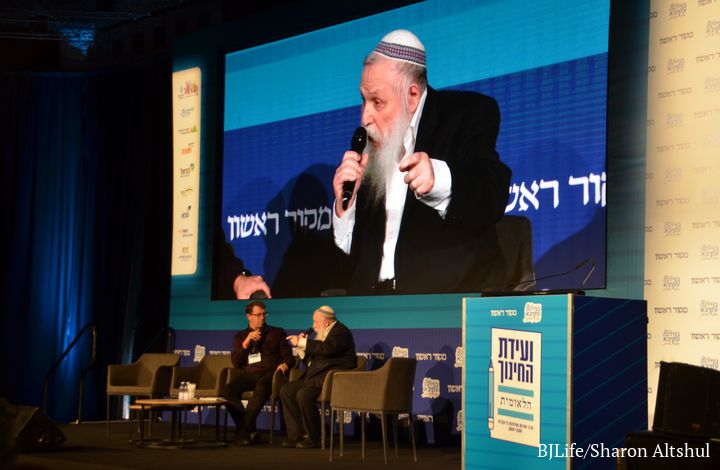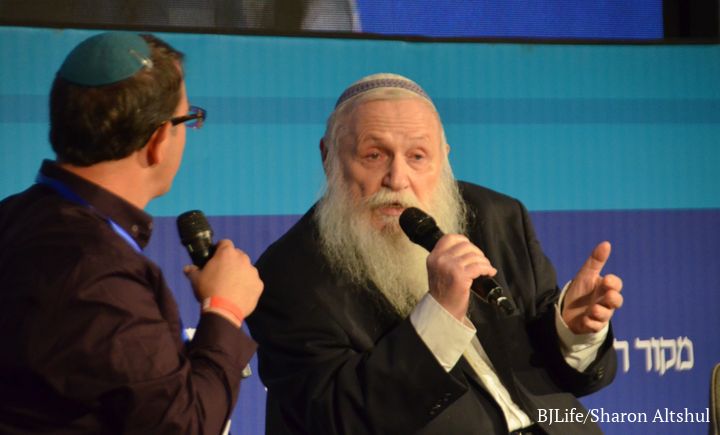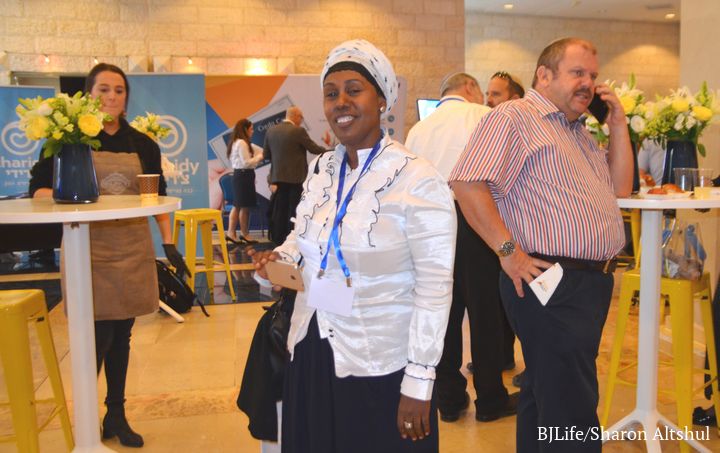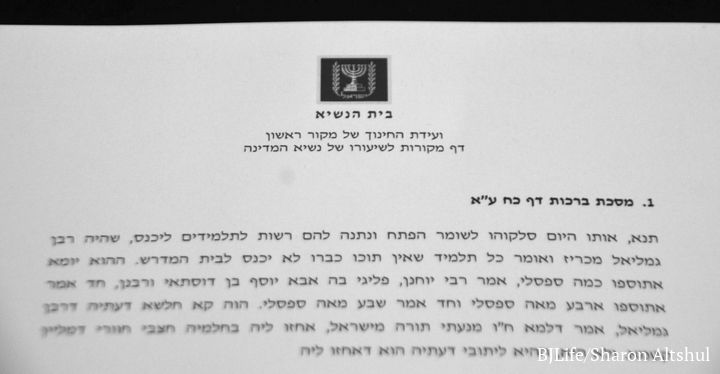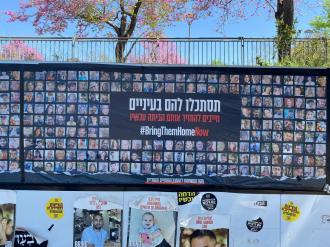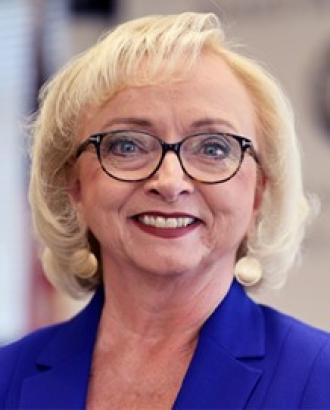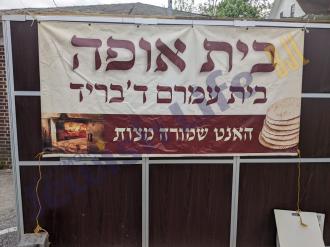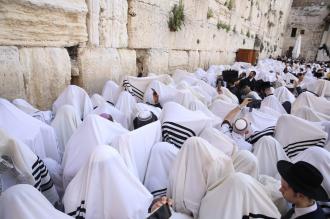Jerusalem, Israel - Nov. 11, 2019 - President Reuven Rivlin Monday, November 11/ 13 Cheshvan, participated as the opening speaker in the first education conference of Bnei Akiva Yeshivot and Ulpanot with Israeli media Makor Rishon held in the International Conference Center in Jerusalem, Israel. Before going to the podium, the president went to greet, Rosh Yeshiva of Ohr Etzion Yeshiva and head of the Center for Bnei Akiva Yeshivot HaRav Haim Meir Drukman seated in the front row next to Jerusalem Mayor Moshe Lion.
The president put on his kippah, to begin with, a section in Brachos, and using texts from Vayikra and Devorim in his remarks. The shiur was entitled ‘The Boundaries of the Israeli Classroom’ and was accompanied by a printed source sheet with the Presidential seal on the top of the page.
At the beginning of his remarks, the president said “We should look the next generation of children growing up here straight in the eye and ask without fear who is entitled and invited to enter the Israeli classroom, and who stays outside. It is a sensitive and complex question, which breaks down into groups, sub-groups, and individuals.”
The president talked about the make-up of classes in Israeli schools and the exclusion of certain sectors of society, saying “The month of Marcheshvan is notorious or blessed, depending on who you ask, for having no Jewish holidays and its the long and unbroken routine. But in recent decades, since the immigration of Jews from Ethiopia to Israel, Marcheshvan has got its own holiday, the Sigd. Do we celebrate that holiday? Does it get mentioned in our classrooms? Do Ethiopian-Israeli children, and the children of Ethiopian-Israelis feel that the Israeli classroom includes them too? Can we finally do away with the saying that Marcheshvan is a ‘bitter’ month because it has no holidays in it?
“The space inside the Israeli classrooms must be made bigger so that it contains those who are sensitive and those who are very sensitive, the dreamers and those who are switched on, those who like being in the classroom and even those who feel they have to get out of it,” he said. “On the collective level, I want to suggest that we include those who are distant without neglecting those who are close, to include the rebels, the introverts, the believers and those who are disappointed, the minorities and the majorities.”
“Recently, Beit HaNasi’s ‘Israeli Hope’ initiative, together with the Ministry of Education, has promoted a program for schoolchildren to get to know Israeli society. There were some concerns about the program, and they're still. This is delicate work, because it requires us to learn the complex art of openness that knows how to set boundaries. We must ask ourselves again and again how to open up, how far and to what extent, so that the things that are closest to our hearts are not threatened. Is it possible? I will say to you in all honesty that I do not know. But I do believe that we do not have the right to stop hoping, or to desist from this demanding and delicate work, and when I look at the audience sitting here today and at the experts who have an open mind and heart to listening, to learning and to teaching, both to observe and to do at the same time, I know that hope is based on something solid.”
Bnei Akiva Yeshivot and Ulpanot CEO Elchanan Glatt and Rav Drukman presented President Rivlin with a special sefer at the conclusion of his shiur.
The long list of Israeli educational leaders, Members of Knesset past and present, and politicians presenting and attending with Bnei Akiva Yeshivot and Ulpanot leadership, included HaRav Eliyahu Ben-Dahan, HaRav Yonah Goodman, Director-General AMIT Dr. Amnon Eldar, Shulamit "Shuli" Mualem-Rafaeli, Bezalel Smotrich, Rav Rafi Peretz, Oded Rivivi, and Rav Eli Eidelberg,
The concluding speaker of the full-day program moderated by Makor Rishon journalists was by Prime Minister Benjamin Netanyahu, who spoke of the Israeli political situation.
In the International Conference Center lobby, participants were able met representatives of sponsoring banks, network with fellow educators and Bnei Akiva leaders, and learn about CAUSEMATCH, an organization that helps non-profits run online fundraising campaigns.

